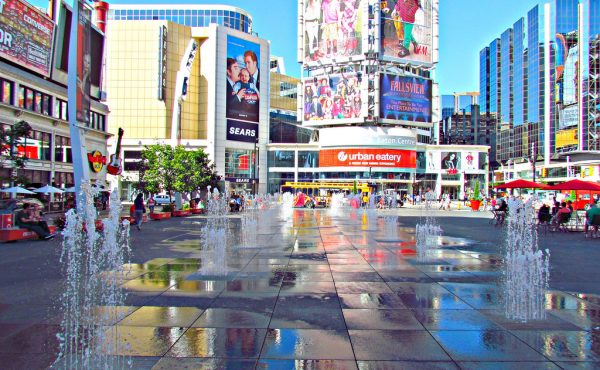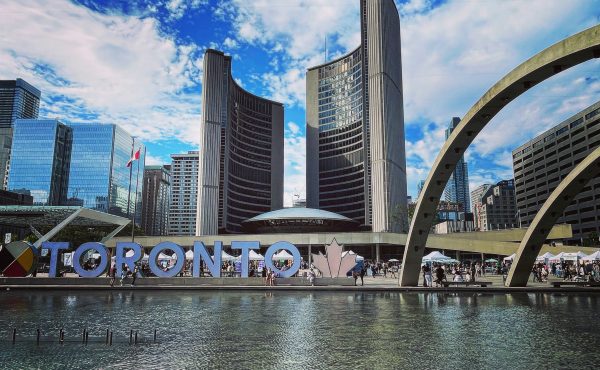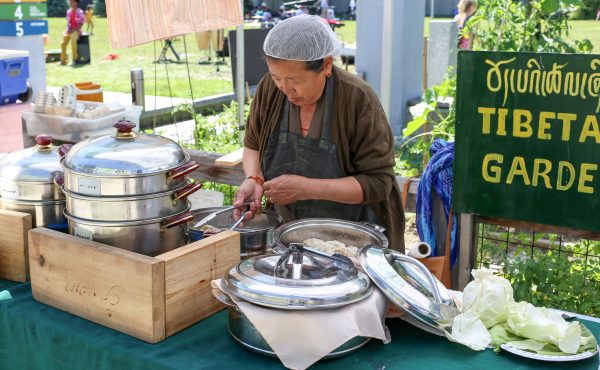 This regular online series features interviews with fascinating and influential urban thinkers, with a focus on discussing how Toronto can become a more engaged, accessible, sustainable city.
This regular online series features interviews with fascinating and influential urban thinkers, with a focus on discussing how Toronto can become a more engaged, accessible, sustainable city.
One of the biggest surprises of the 2010 municipal election was Mary-Margaret McMahon’s upset victory over council veteran and former speaker Sandra Bussin. However, Mrs. McMahon still remains something of a political enigma. During the election, she preached both progressive values and the need for fiscal restraint. Spacing sat down with the new councillor in order to gauge precisely where she stands on important issues.
Spacing: During the election, you were described as a “fiscally conservative environmentalist.” Is that an apt description?
McMahon: The correct description is “fiscally responsible.” I think people get scared off when they see the term “conservative” because they imagine slash and burn style cuts. Truth is, I’m not a slash and burn type of girl. I’m a firm believer that ordinary Torontonians can create change in their neighbourhoods without receiving a grant or creating another line item on the city budget. I helped organize a farmer’s market in East Lynn and we did everything on a shoestring budget with no cost to the taxpayers or bureaucratic involvement. It was through our own efforts that we effected important neighbourhood change. Eight new decent businesses came in the area because of the market and local kids collected community service hours by being involved. Our food bank also got left-over, fresh Ontario produce. It was a win-win overall and completed entirely on a shoestring budget. That’s what I mean by fiscal responsibility.
Spacing: What is your opinion regarding the previous administration of David Miller?
McMahon: I love what the administration accomplished environmentally and I was impressed with how David Miller put the environment forward and made it a priority. He attempted to create, within Torontonians, a habit of mind to include the environment in their daily lives and helped convince people that environmental action was easier than they thought.
Spacing: During the campaign you mentioned that you favoured transit expansion. In what form?
McMahon: We need to get people moving. When Toronto has a worse commute than Los Angeles, that’s not something to be proud of. Ultimately, I want more comprehensive transit in this city. I support Transit City but I think it needs a bit of tweaking. I don’t think it’s a matter of subway versus LRT, as it’s been framed. The truth is we need both where they each make sense. LRT’s, as I’ve learned, are great for stimulating local business. The Toronto City Summit Alliance came out with 12 different ways to fund Transit City including some great ideas like a value capture levy, i.e., when developer is putting up a new building they incorporate the station in the bottom of their building. That way the city is not building the station. It works in Madrid, Hong Kong and a lot of other countries. I find that highly innovative.
Spacing: What is the most significant environmental challenge Toronto faces?
McMahon: It could almost all be pooled into one. If you’re dealing with transit, for instance, then you’re dealing with air quality and peak oil. So transit is an area of great concern. Another hugely important issue is food security. Food security is one of the reasons why I started a farmer’s market and rallied a couple of neighbours to put in place community gardens. We need more community gardens and also urban ag. When the price of oil goes through the roof we’re going to be worried about where and how we get it. That will mean wondering about where we get our food from too since we’re dependent on food being shipped in from such far-away places.
Spacing: Generally, speaking what is the most important task of council moving forward?
McMahon: Working together. I don’t think it will be a difficult thing for everyone on council. I spoke with a lot of newbie councillors and they’re really keen. We’re all sick of the cliques and the division between left and right. A lot of us just want to work together to get things done. I’m loyal to good ideas above all else. It doesn’t matter where an idea comes from, only that it’s smart and sustainable. If that’s the case, then I’m going to vote for it.
Photo by Bruce Nagy





6 comments
It is encouraging to see a politician mention, and be guided by, peak oil.
This is the primary reason we have to act quickly on transit issues – since we are likely now *at* peak oil. If you thought a bike lane on Jarvis constituted a “war on car”, then you’ll likely consider $2-3/litre gas to be a vehicular holocaust. The GTA is going to basically collapse when people are asked to pay those kinds of prices – and they are going to want (and need) immediate transit relief.
@McKingford Ashame there are no electric or plug-in hybrid vehicles like the Volt, Leaf, Prius, etc. on the horizon…
…oh wait.
Urban egg?
Is that Urban Ag, or… maybe a new ‘free-range’ category for urban chickens with no access to grass but, I don’t know, they get patio service, or …
Thank you Thomas.Owain for pointing out that mistake. Correction made, it is indeed urban ag. Apologies to readers.
Ben Smith, even if everyone traded in their gas-powered cars for electric cars or plug-in hybrids tomorrow, Toronto and Ontario don’t have a power grid capable of dealing with the increased demand for electricity to charge all those batteries.
Peak Oil is also going to keep driving food prices up (fertilizer comes from oil, and a lot of food has to move long distances in vehicles powered by oil) and making it more expensive to pave all our roads (asphalt prices will go up faster than oil prices as more and more crude is diverted to making vehicle fuel).
Peak oil in canada is like starving because you won’t open your fridge.